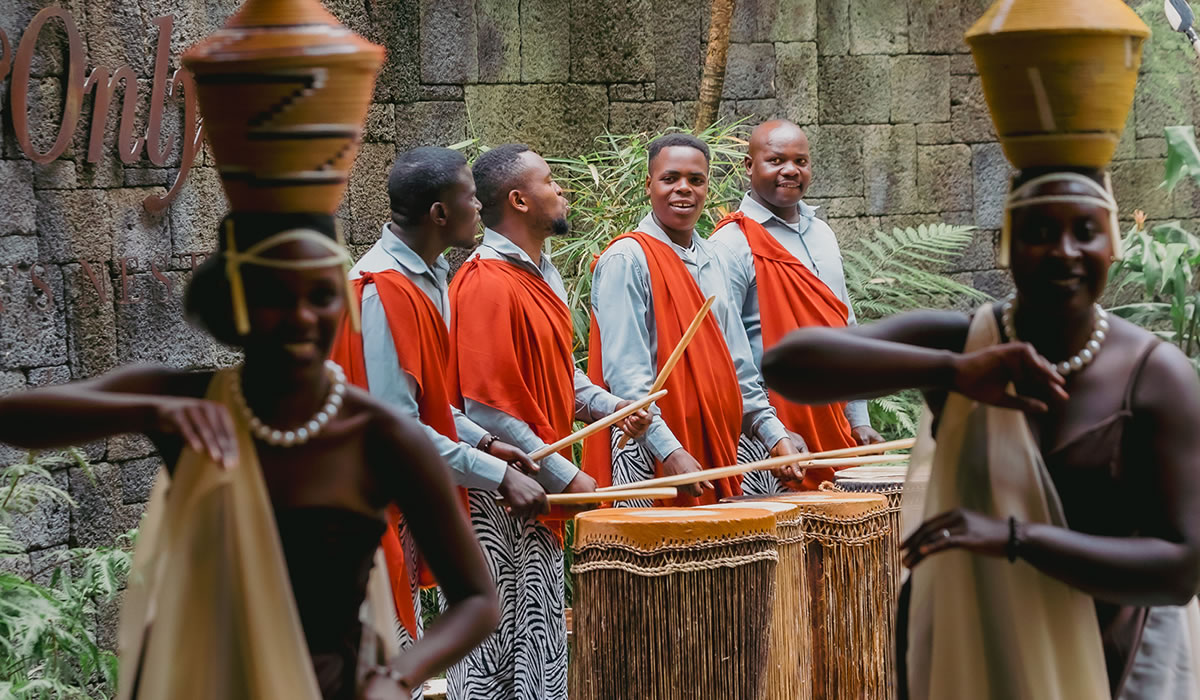Rwanda is not only a destination for wildlife safaris and mountain gorilla trekking but also a land rich in cultural heritage and human warmth. Cultural expedition tours in Rwanda give tourists a chance to go beyond the surface and experience the country’s soul through its people, traditions, music, and daily life. From the ancient customs of the Rwandan kingdoms to modern expressions of art and community life, Rwanda’s culture is both deeply rooted and remarkably resilient. These tours provide immersive encounters that celebrate the unity, creativity, and diversity of Rwandan society while promoting sustainable tourism that benefits local communities.

Rwanda’s culture is a fascinating blend of history, art, and everyday practices passed down through generations. The country’s traditional values of unity, respect, and hard work are reflected in its songs, dances, crafts, and ceremonies. After the country’s remarkable recovery from the 1994 genocide, Rwanda has rebuilt itself into a shining example of resilience and progress. Cultural expedition tours allow tourists to learn how Rwandans have preserved their heritage while embracing modernity.
These tours are not limited to museums or cultural centers; they extend to villages, markets, workshops, and festivals, where tourists can interact with local people and experience their way of life firsthand. Rwanda’s compact size makes it easy to explore various cultural destinations within a short period, whether in Kigali, the countryside, or near major national parks.
Cultural Expedition Tours in Rwanda is also community-driven. Many experiences are organized by local cooperatives, ensuring that tourism revenue supports education, healthcare, and environmental conservation in nearby villages. This approach allows tourists to engage authentically while contributing to sustainable development.
Kigali – The Cultural Heart of Rwanda
Any cultural expedition in Rwanda naturally begins in Kigali, the capital city and cultural hub of the nation. Kigali is not only one of Africa’s cleanest and safest cities but also a place where traditional and modern influences blend seamlessly. The city’s museums, art galleries, and markets offer an insightful introduction to Rwanda’s past and present.
A visit to the Kigali Genocide Memorial is an essential and emotional part of understanding Rwanda’s history. The memorial honors the victims of the 1994 Genocide against the Tutsi and provides a space for reflection, learning, and reconciliation. Tourists often describe it as a deeply moving experience that highlights the resilience and unity of the Rwandan people.
Beyond its history, Kigali showcases a vibrant art and design scene. The Inema Arts Center, founded by local artists, displays contemporary Rwandan art that tells stories of hope and creativity. Other galleries such as Niyo Arts Gallery and Kigali Arts Center offer opportunities to meet artists, learn about their inspirations, and even participate in workshops.
For a taste of daily life, tourists can visit Kimironko Market, one of the largest in Kigali. Here, they can interact with local vendors, sample tropical fruits, buy colorful fabrics, and experience the lively rhythm of Rwandan commerce. The city also offers coffee-tasting tours, craft shops, and local restaurants where traditional dishes like isombe (cassava leaves with groundnuts) and brochettes (grilled meat skewers) are served with warm hospitality.
Iby’Iwacu Cultural Village
One of the most popular cultural attractions in Rwanda is the Iby’Iwacu Cultural Village, located near Volcanoes National Park in Musanze District. This community-based initiative offers tourists a glimpse into traditional Rwandan life through interactive and educational experiences.
At Iby’Iwacu, former poachers who once depended on the forest for survival have been trained and employed as cultural performers and guides. They now share their heritage with pride, promoting conservation and cultural preservation. Tourists can watch traditional dances, listen to drumming performances, and learn about Rwandan marriage ceremonies, traditional medicine, and local crafts.
Visitors are encouraged to participate rather than simply observe. They can grind millet, prepare banana beer, or even try on traditional clothing known as umusambi. Each activity provides a sense of connection with the community and helps tourists appreciate Rwanda’s cultural richness.
The Iby’Iwacu Cultural Village has become a model for eco-cultural tourism in Africa, blending entertainment, education, and conservation. It is a perfect stop for tourists visiting Volcanoes National Park for gorilla trekking, offering a complementary experience that celebrates the people who live alongside Rwanda’s natural treasures.
King’s Palace Museum
To understand Rwanda’s historical identity, a visit to the King’s Palace Museum in Nyanza, located in the Southern Province, is a must. This site was once the residence of Rwanda’s traditional monarchs and remains a symbol of the country’s pre-colonial heritage.
The reconstructed royal palace is an impressive example of traditional Rwandan architecture, featuring a large thatched hut made from locally sourced materials. Inside, guides narrate stories about the roles of kings and queens, the royal court, and the cultural importance of rituals and hierarchy in ancient Rwanda.
The museum also houses a modern palace built by King Mutara III Rudahigwa in the 1930s, showcasing a blend of European and traditional influences. Tourists can see royal regalia, artifacts, and historical photographs that chronicle Rwanda’s evolution from monarchy to modern republic.
Another highlight of the King’s Palace Museum is the Inyambo royal cows, which are not only beautiful but also sacred in Rwandan culture. The cows are adorned with long, curved horns and are attended by herders who sing traditional songs to them, creating an unforgettable and symbolic experience.
Ethnographic Museum in Huye
Located in the university town of Huye (Butare), the Ethnographic Museum is Rwanda’s largest and most comprehensive cultural institution. Built with Belgian support in 1989, it serves as a treasure trove of Rwandan heritage, displaying thousands of artifacts that depict traditional life, art, and history.
The museum’s exhibits cover topics such as agricultural tools, traditional housing, weaving, pottery, and music. Tourists can admire intricate basketry, learn about ancestral worship practices, and view models of traditional homesteads. The museum also has an impressive collection of traditional musical instruments, including drums and harps, which illustrate the importance of music in Rwandan culture.
For those interested in deeper cultural understanding, the Ethnographic Museum provides context for Rwanda’s evolution from early kingdoms to a modern nation. It is a perfect stop for history enthusiasts and those participating in southern Rwanda cultural expeditions.
Cultural Experiences at the Twin Lakes and Community Villages
Rwanda’s cultural charm extends into rural areas, where community-based tourism projects allow tourists to experience authentic village life. Around the Twin Lakes of Burera and Ruhondo, near Musanze, community tours introduce visitors to local farming, fishing, and traditional crafts. Tourists can join residents in milking cows, weaving baskets, or cooking local dishes while learning about traditional beliefs and family values.
In the Nyungwe region, cultural tours often include visits to tea plantations, where tourists can follow the journey of tea from leaf to cup while interacting with local workers. The experience blends agriculture, culture, and nature, giving visitors insight into Rwanda’s rural economy and craftsmanship.
Community-based tourism initiatives such as the Red Rocks Cultural Centre in Musanze and the Gisakura Tea Experience near Nyungwe National Park emphasize cultural exchange and sustainability. At Red Rocks, tourists can participate in banana beer making, basket weaving, or pottery classes, while also supporting conservation education programs for local youth.
Traditional Dance, Music, and Festivals
Music and dance are integral to Rwandan culture and form an essential part of every cultural expedition tour. The traditional Intore dance, also known as “The Dance of Heroes,” is the most famous performance in Rwanda. Dancers wear colorful attire and perform graceful yet powerful movements that symbolize strength and unity. The drummers, known as Abatimbo, accompany them with rhythmic beats that echo through the hills.
Tourists can witness such performances at cultural centers, festivals, and village gatherings. Rwanda’s Kwita Izina ceremony, an annual gorilla naming event held in Musanze, also features cultural dances, music, and parades that celebrate conservation and heritage.
Music in Rwanda has evolved over time, incorporating modern genres such as Afrobeat and gospel while maintaining traditional influences. Local festivals, like the Rwanda Cultural Heritage Week and Fespad (Pan-African Dance Festival), showcase the country’s creative spirit and provide opportunities for cultural exchange.
Crafts and Souvenirs
Rwanda is renowned for its high-quality handcrafts that reflect both tradition and artistry. Tourists can buy souvenirs from local cooperatives and women’s groups across the country, ensuring that their purchases directly support artisans and their families.
The most iconic craft is the Agaseke basket, a woven masterpiece that symbolizes peace and unity. These baskets, often decorated with intricate geometric patterns, are available in markets, galleries, and craft centers. Other popular crafts include pottery, wooden carvings, jewelry, and handwoven textiles.
Visiting cooperative workshops such as Azizi Life in Muhanga or Gahaya Links in Kigali allows tourists to learn about the craft-making process and even participate in creating their own handmade souvenirs.
The Importance of Cultural Tourism in Rwanda
Cultural expedition tours in Rwanda play a vital role in preserving heritage, promoting unity, and supporting rural economies. Through community-based tourism, Rwandans are empowered to share their stories and traditions while generating sustainable income. Tourists benefit from genuine interactions and a deeper understanding of Rwanda’s identity beyond its wildlife attractions.
These tours also reinforce Rwanda’s commitment to sustainable tourism, ensuring that culture and nature coexist harmoniously. The integration of conservation and cultural education helps protect both ecosystems and traditions for future generations.
Cultural expedition tours in Rwanda offer a window into the country’s heart, where history, art, and everyday life intertwine. From the royal legacy of Nyanza to the vibrant rhythms of Intore dance and the peaceful rhythms of village life, every experience reveals a story of resilience and pride.
For tourists seeking more than just sightseeing, Cultural Expedition Tours in Rwanda provide a deeper connection to its people and their enduring spirit. Whether exploring Kigali’s art galleries, attending a festival, or sharing stories with villagers by the Twin Lakes, cultural expeditions in Rwanda are journeys of discovery, reflection, and inspiration.


